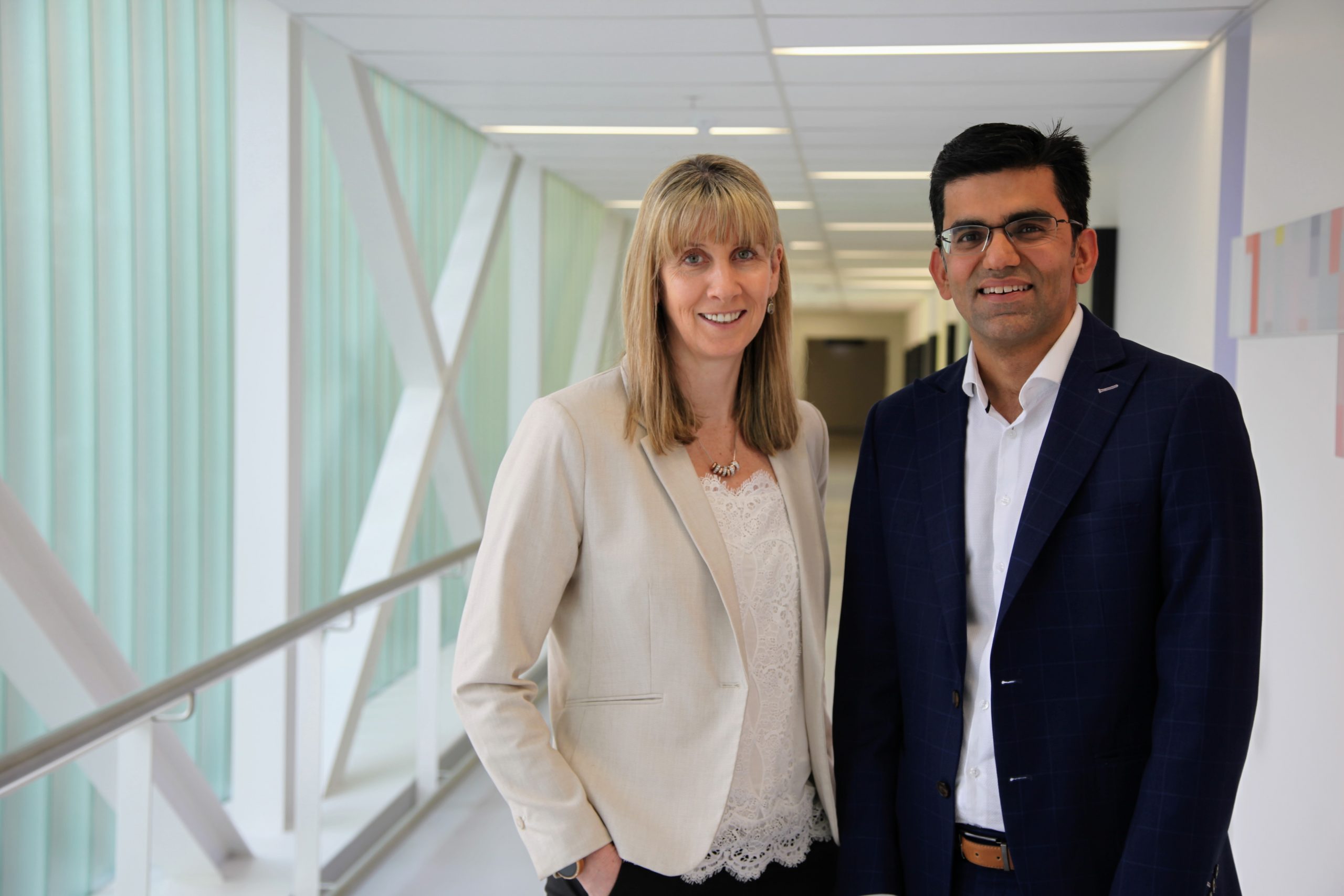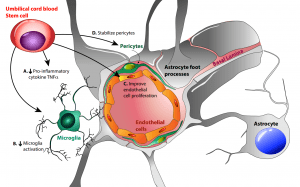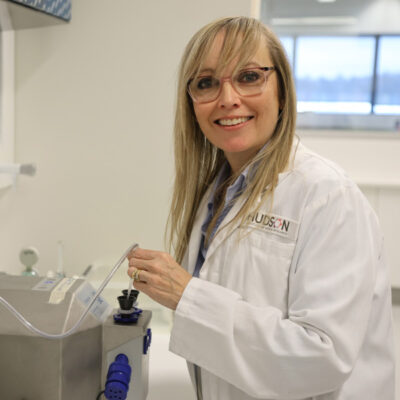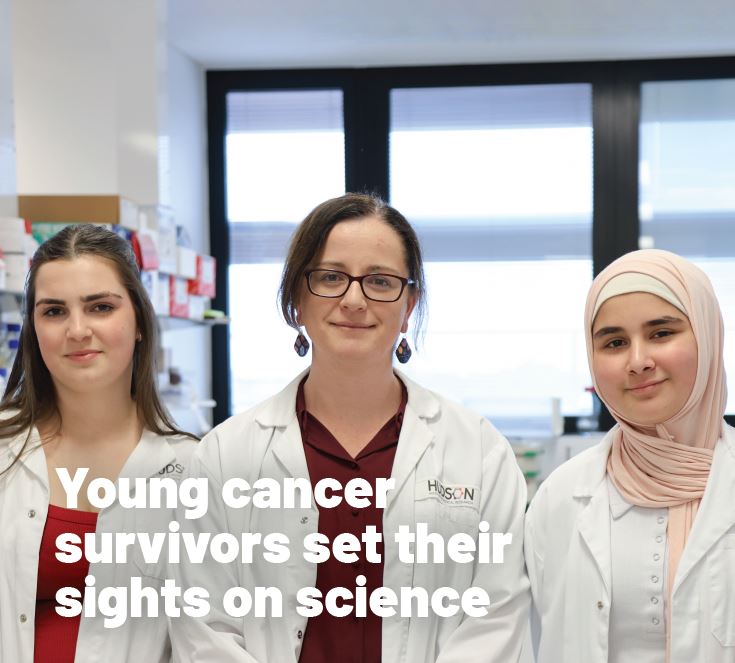Protecting growth-restricted babies from brain injury with stem cell therapy
By Hudson Institute communications. Reviewed by Professor Suzanne Miller

Hudson Institute scientists have demonstrated for the first time that umbilical cord stem cells can protect preterm, growth-restricted babies from brain injury.
Up to five–eight percent of pregnancies in Australia are affected by fetal growth restriction (FGR)—a condition which leads to poor growth of an unborn baby.
The mechanical ventilation that these babies need for the first few days of life can have detrimental effects on the developing brain. Many of them are born early (also referred to as preterm or premature), which only exacerbates the risk of brain injury further.
This brain damage often causes long-term developmental problems, and can lead to conditions such as cerebral palsy, behavioural disorders, cognitive deficits and motor developmental delays.
How can stem cell therapy help?
There is currently no treatment which can be used as an early intervention to prevent brain damage of babies with FGR. However, a growing body of evidence suggests that stem cell therapies could be the answer to this problem.
Dr Atul Malhotra and Associate Professor Suzie Miller led a study published in Stem Cell Research and Therapy which investigated the effect of umbilical cord blood stem cells (UCBCs) in a preclinical model of FGR.
Dr Malhotra is a consultant neonatologist at Monash Newborn, Monash Children’s Hospital; a senior lecturer in the Department of Paediatrics, Monash University; and a research fellow at Hudson Institute. Associate Professor Miller is a Deputy Centre Head at Hudson Institute and a senior scientist at the Department of Obstetrics and Gynaecology, Monash University.

The team demonstrated, for the first time, that UCBCs can alleviate the brain damage caused by FGR and being born preterm—a ground-breaking discovery with significant implications for treatment.
Treatment with UCBCs led to a decrease in neuroinflammation, oxidative stress, cerebrovascular resistance (obstruction to blood flow), and greater integrity of the neurovascular unit in the brain.
The team believe that UCBCs stabilise the neurovascular unit—comprising of several different cell structures that control blood flow to the brain—possibly by reducing the inflammation surrounding them.
These UCBCs therefore act by strengthening the ‘gate keepers’ of the brain, which in turn mitigates the effects of brain injury caused by an early and growth restricted birth.
How can this discovery be translated to clinical practice?
“We propose that the results of this study lay the foundation for a novel therapeutic option, using cord blood stem cells as an early intervention therapy for these vulnerable babies,” commented Dr Malhotra.
“Cell therapy is now ready for translation to clinical trials and this study provides further evidence of its potential benefit in preterm infants.”
The team’s next step is therefore a clinical trial of cord blood therapy in preterm babies at Monash Children’s Hospital, testing feasibility and safety of the treatment.
What is FGR?
- FGR is a condition where an unborn baby, or fetus, is smaller than expected
- It can begin at any time during pregnancy, and puts babies at risk of loss in brain development, which can cause the child long-term problems in later life such as cerebral palsy, autism, learning and other behavioural challenges
- Factors in the mother such as high blood pressure, diabetes, cigarette smoking and alcohol or drug use can increase the risk of FGR
- The risk can also be increased by the placenta not attaching well, or blood flow through the umbilical cord being limited
Collaborators | Monash University
This research was supported by | National Health and Medical Research Council (NHMRC), Cerebral Palsy Alliance, The Royal Australasian College of Physicians
Journal | Stem Cell Research & Therapy
Title | Neurovascular effects of umbilical cord blood-derived stem cells in growth-restricted newborn lambs
View publication | https://doi.org/10.1186/s13287-019-1526-0
In this article
About Hudson Institute
Hudson Institute’ s research programs deliver in three areas of medical need – inflammation, cancer, women’s and newborn health. More
Hudson News
Get the inside view on discoveries and patient stories
“Thank you Hudson Institute researchers. Your work brings such hope to all women with ovarian cancer knowing that potentially women in the future won't have to go through what we have!”





